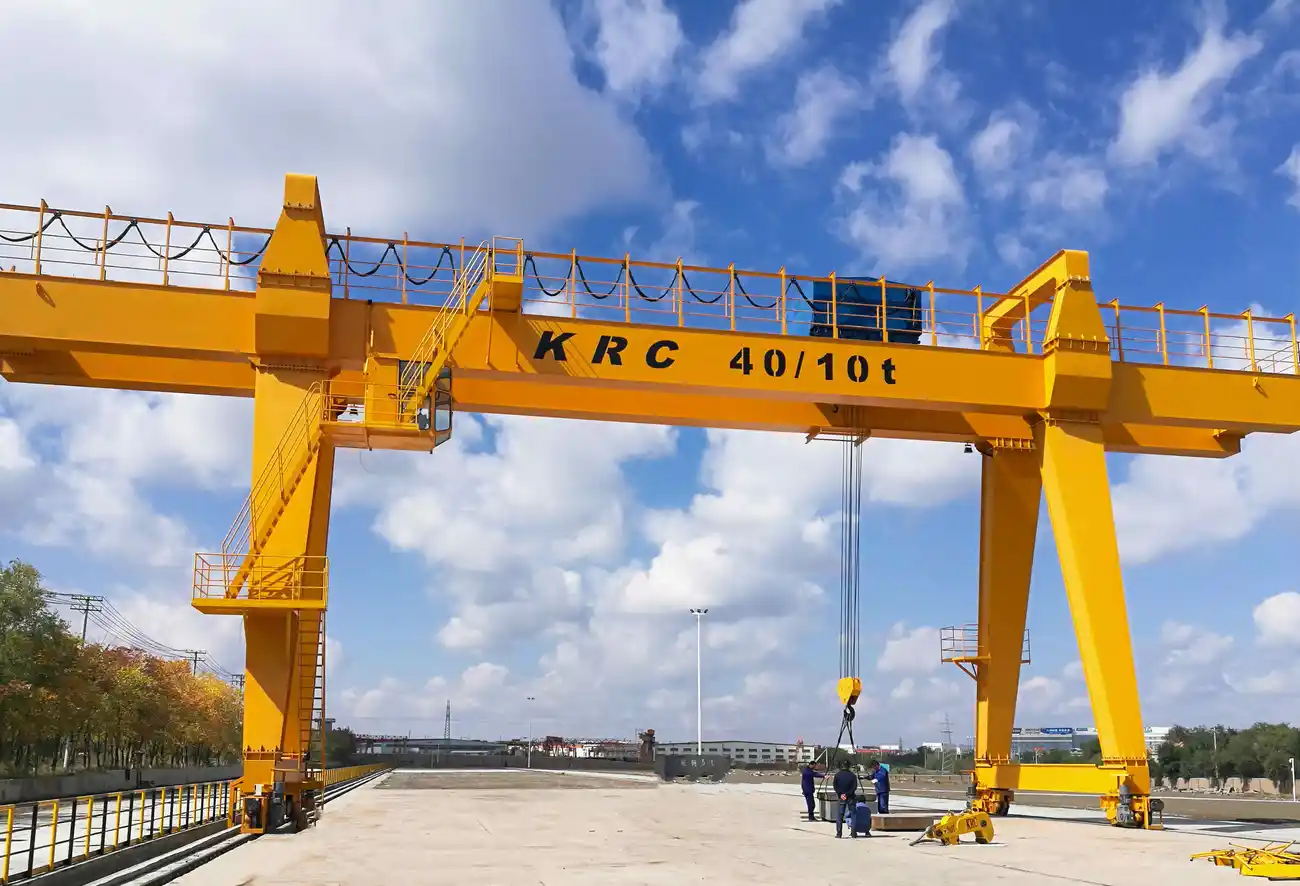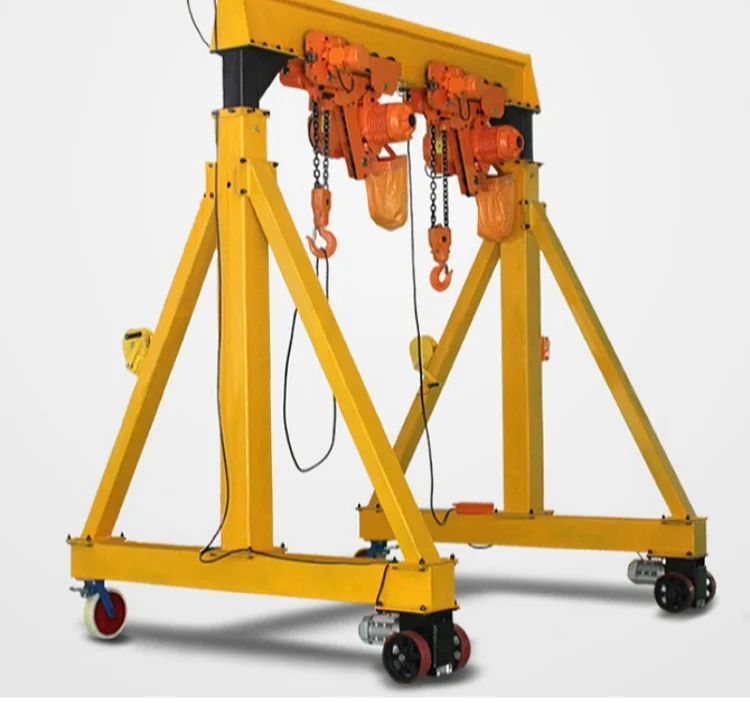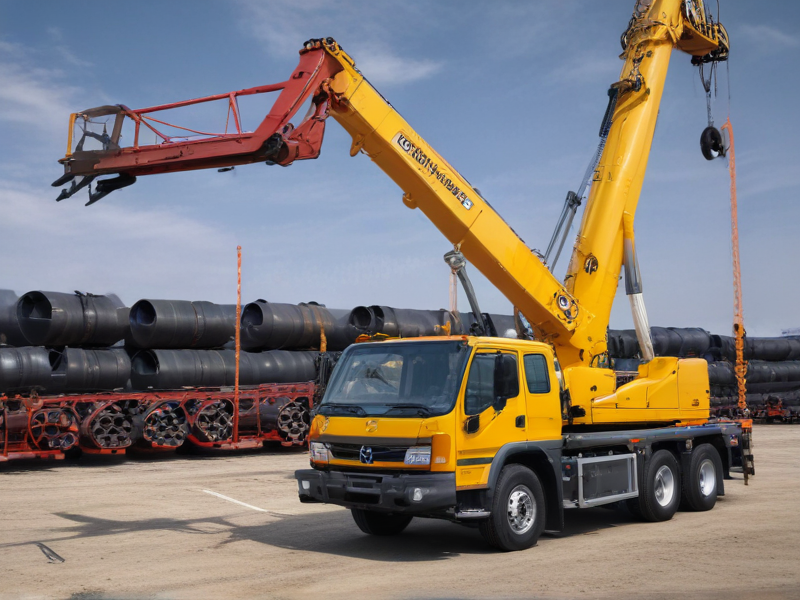Top 10 mobile crane supplier in China introduce,list main products and website if have
China is home to numerous reputable mobile crane manufacturers. Here are the top 10 mobile crane suppliers, along with their main products and websites:
1. XCMG (Xuzhou Construction Machinery Group)
– Main Products: All-terrain cranes, truck cranes, rough terrain cranes.
– Website: [xcmg.com](http://www.xcmg.com)
2. Zoomlion Heavy Industry
– Main Products: Truck cranes, crawler cranes, rough terrain cranes.
– Website: [en.zoomlion.com](http://en.zoomlion.com)
3. SANY Group
– Main Products: Truck cranes, all-terrain cranes, rough terrain cranes, crawler cranes.
– Website: [sanyglobal.com](http://www.sanyglobal.com)
4. LiuGong Machinery
– Main Products: Truck cranes, all-terrain cranes, rough terrain cranes.
– Website: [liugong.com](http://www.liugong.com)
5. XCMG Schwing
– Main Products: Concrete pumps, truck-mounted concrete pumps, truck cranes.
– Website: [schwing.com.cn](http://www.schwing.com.cn)
6. Foton Lovol International Heavy Industry
– Main Products: Truck cranes, rough terrain cranes.
– Website: [fotonlovol.com](http://www.fotonlovol.com)
7. Tadano China
– Main Products: All-terrain cranes, truck cranes, rough terrain cranes.
– Website: [tadano.com](http://www.tadano.com)
8. Shandong Huaxia Group
– Main Products: Truck cranes, tower cranes.
– Website: [huaxiagroup.cn](http://www.huaxiagroup.cn)
9. Zhengzhou New Dafang Heavy Industry
– Main Products: Bridge erection cranes, gantry cranes.
– Website: [dfzg.cn](http://www.dfzg.cn)
10. Yutong Heavy Industries
– Main Products: Truck cranes, all-terrain cranes.
– Website: [yutonghi.com](http://www.yutonghi.com)
These companies are known for their innovative designs, high-quality manufacturing, and extensive product lines catering to various construction and lifting applications worldwide. For more detailed information, you can visit their respective websites.

How to find and select check reliable mobile crane supplier in China
Finding a reliable mobile crane supplier in China requires thorough research and judicious vetting. Here’s a streamlined process to assist you:
1. Online Research and Directories: Utilize websites like Alibaba, Made-in-China, and Global Sources to identify potential suppliers. These platforms have extensive databases of Chinese manufacturers with product listings, reviews, and ratings.
2. Check Credentials: Verify the company’s credentials, including business licenses, export licenses, and ISO certifications. This information is often available on their profile pages on B2B platforms or can be directly requested.
3. Assess Experience and Reputation: Look for suppliers with substantial experience and a positive reputation. Check for how long they have been in business, read customer reviews, and ask for references from previous clients.
4. Product Quality and Compliance: Ensure that their products comply with international standards (CE, ANSI, ASME). Request product specifications, quality assurance certificates, and inspection reports.
5. Visit the Factory: If feasible, visit the supplier’s factory. This allows you to see their production capabilities, quality control processes, and working conditions firsthand. Alternatively, hire a third-party inspection service to audit the factory.
6. Sample Order: Place a small sample order to test product quality, delivery times, and customer service responsiveness.
7. Communication and Support: Evaluate their communication efficiency and technical support. Reliable suppliers should provide clear communication, prompt responses, and after-sales support.
8. Payment Terms and Conditions: Carefully read and negotiate payment terms and conditions. Use secure payment methods and consider opening a letter of credit for large orders to mitigate risks.
By following these steps, you can effectively identify and select a dependable mobile crane supplier in China.
Background Research for mobile crane supplier in China, use qcc.com archive.org importyeti.com
When conducting background research on a mobile crane supplier in China, qcc.com, archive.org, and importyeti.com are valuable resources for gathering comprehensive and credible information.
1. qcc.com:
– Overview: qcc.com is a widely-used corporate information platform in China that provides detailed data on companies, including their registration details, financial health, legal records, and more.
– Usage: By searching for the mobile crane supplier’s name on qcc.com, you can obtain insights into the company’s official registration name, registered capital, establishment date, and shareholder structure. Additionally, the site may offer financial statements, business performance statistics, and any legal disputes the company may be involved in, aiding in evaluating their legitimacy and reliability.
2. archive.org:
– Overview: Known as the Internet Archive, archive.org allows users to access historical snapshots of web pages. This tool is useful for examining how a company’s online presence and information have evolved over time.
– Usage: By inputting the supplier’s website URL into the Wayback Machine on archive.org, you can review changes in their product offerings, business focus, and contact information over the years. This historical data provides context on the company’s growth, stability, and how it has adapted to market shifts.
3. importyeti.com:
– Overview: ImportYeti is a platform that aggregates and analyzes data from U.S. Customs records. It provides insights into the trade activities of suppliers, including shipment volumes, major clients, and distribution trends.
– Usage: Utilize ImportYeti to query the mobile crane supplier and identify their largest buyers, shipment frequencies, and consistency in trade. This data can validate the supplier’s export capabilities and dependability by showing established business relationships and shipment histories.
In conclusion, using qcc.com for company legitimacy and financial health, archive.org for historical web data, and importyeti.com for trade activities provides a well-rounded research approach. This combined assessment ensures a thorough vetting of potential mobile crane suppliers in China.

Price Cost Research for mobile crane supplier in China, use temu.com and 1688.com
Conducting price and cost research for a mobile crane supplier in China using both Temu.com and 1688.com reveals a range of options and price points. Below is an overview:
Temu.com
Temu.com is primarily known for connecting suppliers with international buyers. The platform often deals in bulk and wholesale transactions. Here’s what you can generally expect:
– Price Range: Mobile cranes on Temu.com can range widely based on specifications, brand, and capabilities. Entry-level models may start at around $50,000, while more advanced or heavy-duty cranes could cost upwards of $200,000.
– Shipping and Logistics: Shipping cost can be significant due to the size and weight of mobile cranes. Potential buyers should account for this additional expense.
– Supplier Reputation: Reviews and ratings are available for suppliers, which can be a useful tool for ensuring reliability and quality.
1688.com
1688.com is a major B2B e-commerce platform operated by Alibaba Group, predominantly serving the Chinese domestic market. Here’s a summary of findings:
– Price Range: Similar to Temu.com, mobile cranes can vary greatly. Basic models might be available for as low as 300,000 RMB (approximately $46,000), while more specialized cranes can go beyond 1,500,000 RMB (around $230,000).
– Customization: 1688.com offers more flexibility in terms of customization options specific to buyers’ needs given its focus on domestic manufacturers.
– Minimum Order Quantity (MOQ): Many listings on 1688.com specify a higher MOQ, which could be a consideration for smaller buyers.
Conclusion
Both platforms offer a diverse array of mobile cranes, with price points reflecting the specifications and capabilities of the equipment. For international buyers, Temu.com may be more accessible due to its orientation towards global trade. On the other hand, 1688.com provides robust options with likely better customization and potential price benefits for bulk domestic purchases. Prospective buyers should weigh factors such as shipping costs, supplier reputation, and MOQ when making a decision.
Compare China and Other mobile crane supplier: Products Quality and Price,Visible and Hidden Costs
When comparing Chinese mobile crane suppliers with those from other regions, distinct differences in product quality, price, and costs emerge.
Product Quality:
Chinese mobile cranes have significantly improved in quality over the years, with many manufacturers adopting international standards. However, European and American cranes, such as those from Liebherr or Manitowoc, are often perceived as superior due to advanced technology, rigorous testing, and longer track records. Japanese brands like Tadano and Kobelco also maintain high quality and reliability.
Price:
Price-wise, Chinese cranes are generally more competitive. Lower labor costs and local sourcing of materials allow Chinese manufacturers to offer cranes at a fraction of the price of Western or Japanese counterparts. This cost advantage makes Chinese cranes attractive, especially for budget-conscious buyers.
Visible Costs:
– Initial Purchase Price: Chinese cranes are usually 20-30% cheaper than Western or Japanese brands.
– Shipping: For non-domestic buyers, shipping costs from China might be higher compared to closer regional suppliers.
Hidden Costs:
– Maintenance and Spare Parts: While the initial purchase is cheaper, Chinese cranes may incur higher maintenance costs due to shorter intervals between repairs and the potential for less durable components. Spare parts might also need to be imported, adding to the expenses and downtime.
– Resale Value: Western and Japanese cranes generally have a higher resale value due to their reputation for longevity and reliability.
– Training and Support: Western and Japanese suppliers often provide comprehensive training and robust after-sales support, which can be limited or more costly when dealing with Chinese manufacturers.
In summary, Chinese mobile cranes offer an attractive price point but may come with higher long-term hidden costs. Conversely, Western and Japanese cranes command a premium price that can be offset by superior quality, lower maintenance costs, and better support. Evaluating the total cost of ownership, including both visible and hidden expenses, is crucial for making an informed decision.
Custom Private Labeling and Branding Opportunities with Chinese mobile crane supplier
Exploring custom private labeling and branding opportunities with a Chinese mobile crane supplier can offer significant advantages for your business. By partnering with a reputable supplier, you gain access to high-quality, cost-effective products that can be tailored to your brand’s requirements.
1. Customization Options: Chinese suppliers are often flexible in adapting their products to meet specific client needs. You can customize the mobile cranes to reflect your brand identity through unique color schemes, logo placements, and specific design features.
2. Quality Assurance: Many Chinese manufacturers adhere to international quality standards and certifications such as ISO, CE, and CCC. They can provide assurance of the crane’s reliability and safety, which is critical for maintaining your brand’s reputation.
3. Cost-Effective Production: Lower labor and production costs in China allow you to create high-quality cranes at competitive prices, ensuring a better profit margin for your business.
4. Fast Turnaround Times: Advanced manufacturing capabilities and efficient supply chains in China can lead to shorter production and delivery times. This agility helps in meeting market demands swiftly.
5. Comprehensive Support: Leading Chinese suppliers offer end-to-end services, including design, manufacturing, testing, and after-sales support. This integrated approach simplifies the management process and enhances the overall customer experience.
6. Market Expansion: Private labeling enables your brand to enter new markets with minimal upfront investment. Having a reliable supplier backing your products can boost consumer confidence and drive sales growth.
In conclusion, partnering with a Chinese mobile crane supplier for private labeling and branding presents a lucrative opportunity. It combines customization, quality, cost-efficiency, and comprehensive support to elevate your brand in the competitive market. Conduct thorough due diligence to select a reputable supplier aligned with your business goals.
Tips for Procurement and Considerations when Purchasing from mobile crane supplier
When considering procurement from a mobile crane supplier, it’s essential to ensure a smooth acquisition and optimal use of your investment. Here are key tips and considerations to guide your purchasing process:
1. Supplier Reputation and Reliability: Research the supplier’s reputation in the market. Look for reviews, testimonials, and case studies that reflect their reliability, post-sale service, and customer satisfaction.
2. Specifications and Requirements: Clearly define your operational needs and crane specifications. Consider factors such as lifting capacity, reach, dimensions, mobility, and operating environment to ensure the crane meets your project requirements.
3. Compliance and Certifications: Verify that the cranes comply with local and international safety and quality standards. Check for necessary certifications such as ISO, CE, or specific regional safety certifications.
4. Technology and Innovation: Evaluate the technology offered, including safety features, automation, and ease of integration with your existing systems. Advanced features can improve efficiency and safety on-site.
5. Cost Analysis: Perform a comprehensive cost analysis, including initial purchase price, delivery charges, maintenance, insurance, and potential downtime costs. Ensure that the crane provides value for money over its lifespan.
6. After-Sales Support: Assess the supplier’s after-sales support, including warranty, availability of spare parts, and maintenance services. Reliable support can minimize downtime and extend the equipment’s lifespan.
7. Financing and Leasing Options: Explore various payment options such as financing or leasing, which can alleviate immediate financial pressure and improve cash flow management.
8. Training and Certification: Ensure the supplier provides adequate training for your personnel to operate the crane safely and efficiently. Proper training is crucial for minimizing risks and enhancing productivity.
9. Environmental Considerations: Consider the environmental impact of the equipment. Opt for cranes with eco-friendly features that reduce emissions and noise pollution.
By thoroughly evaluating these aspects, you can make an informed decision that ensures the mobile crane meets your operational needs while providing long-term value.

FAQs on Sourcing and Manufacturing from mobile crane supplier in China
## FAQs on Sourcing and Manufacturing from Mobile Crane Suppliers in China
1. Why source mobile cranes from China?
China is known for its competitive pricing due to lower labor and production costs. Moreover, Chinese manufacturers often provide a wide range of options and customization capabilities, making it possible to find a product that precisely meets your needs.
2. How do I find a reliable mobile crane supplier in China?
Start with industry expos and B2B platforms like Alibaba and Made-in-China. Look for suppliers with verified profiles, positive reviews, and comprehensive product descriptions.
3. What should I consider when evaluating suppliers?
Check for certifications (ISO, CE), factory audits, and request samples. Additionally, you can consult third-party inspection companies to ensure quality and compliance.
4. How do I communicate effectively with suppliers?
Most suppliers have English-speaking sales teams. Clear and precise communication through emails, calls, and instant messaging apps (WeChat) can mitigate misunderstandings.
5. What are the payment terms?
Common terms include T/T (Telegraphic Transfer) with a 30% deposit upfront and 70% balance before shipment. Letter of Credit (L/C) is another secure but more complex option.
6. How do I ensure product quality?
Request pre-shipment inspections and ask for quality assurance reports. Hiring third-party inspection services can provide an extra layer of security.
7. How is shipping handled?
Shipping terms like FOB (Free On Board) and CIF (Cost, Insurance, and Freight) are standard. Work with reputable freight forwarders to handle logistics smoothly.
8. What about customs and import duties?
Tariffs vary by country and product type. It’s essential to consult with customs brokers to understand and manage import duties and tariffs effectively.
9. Can I get after-sales support?
Many suppliers offer after-sales services, including spare parts and technical support. Ensure these services are stipulated in your contract.
10. What is the typical lead time?
Lead times can range from 30 to 90 days, depending on the complexity of the crane and current manufacturing workload.
By considering these key points, you’ll be better positioned to successfully source and manufacture mobile cranes from China.

